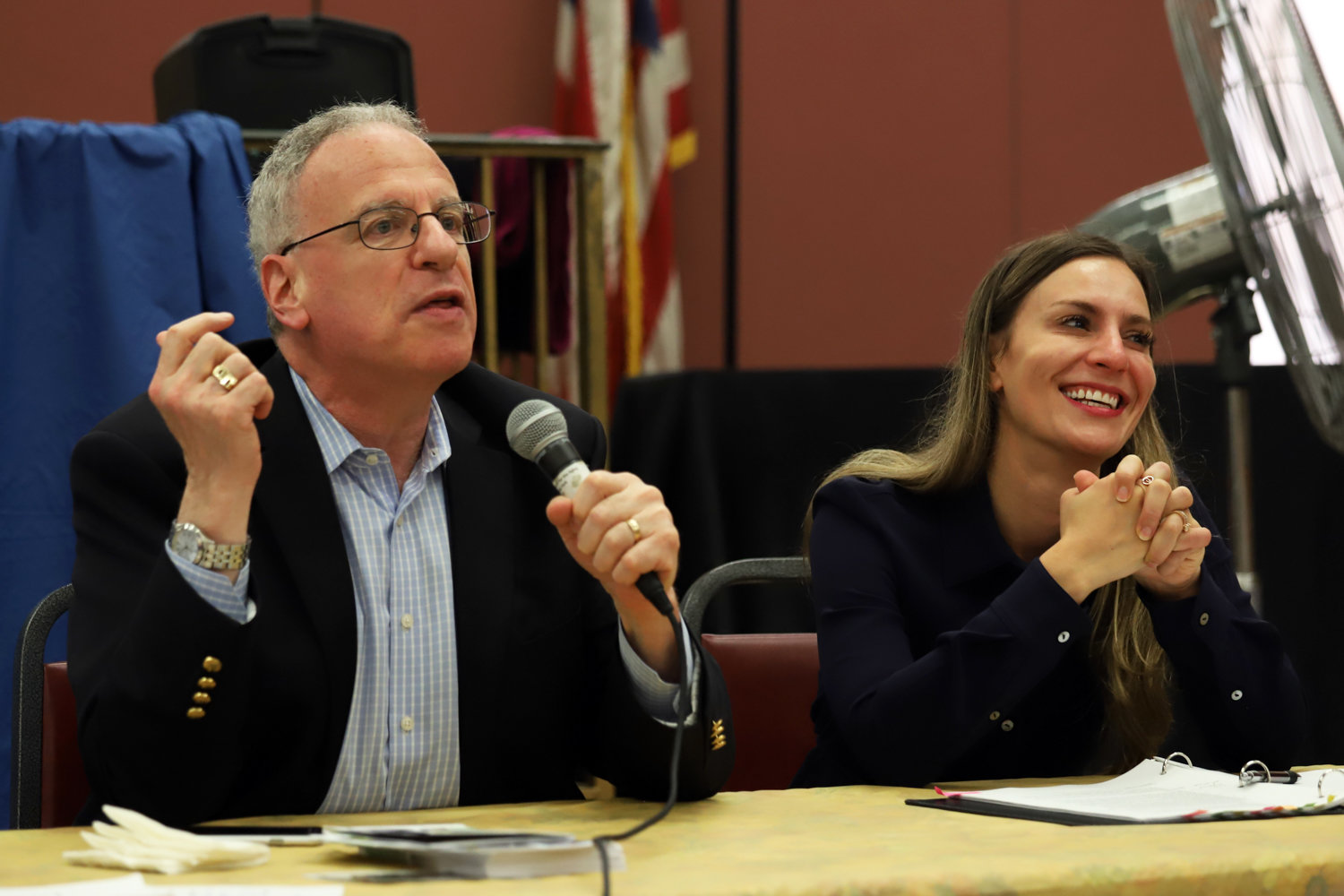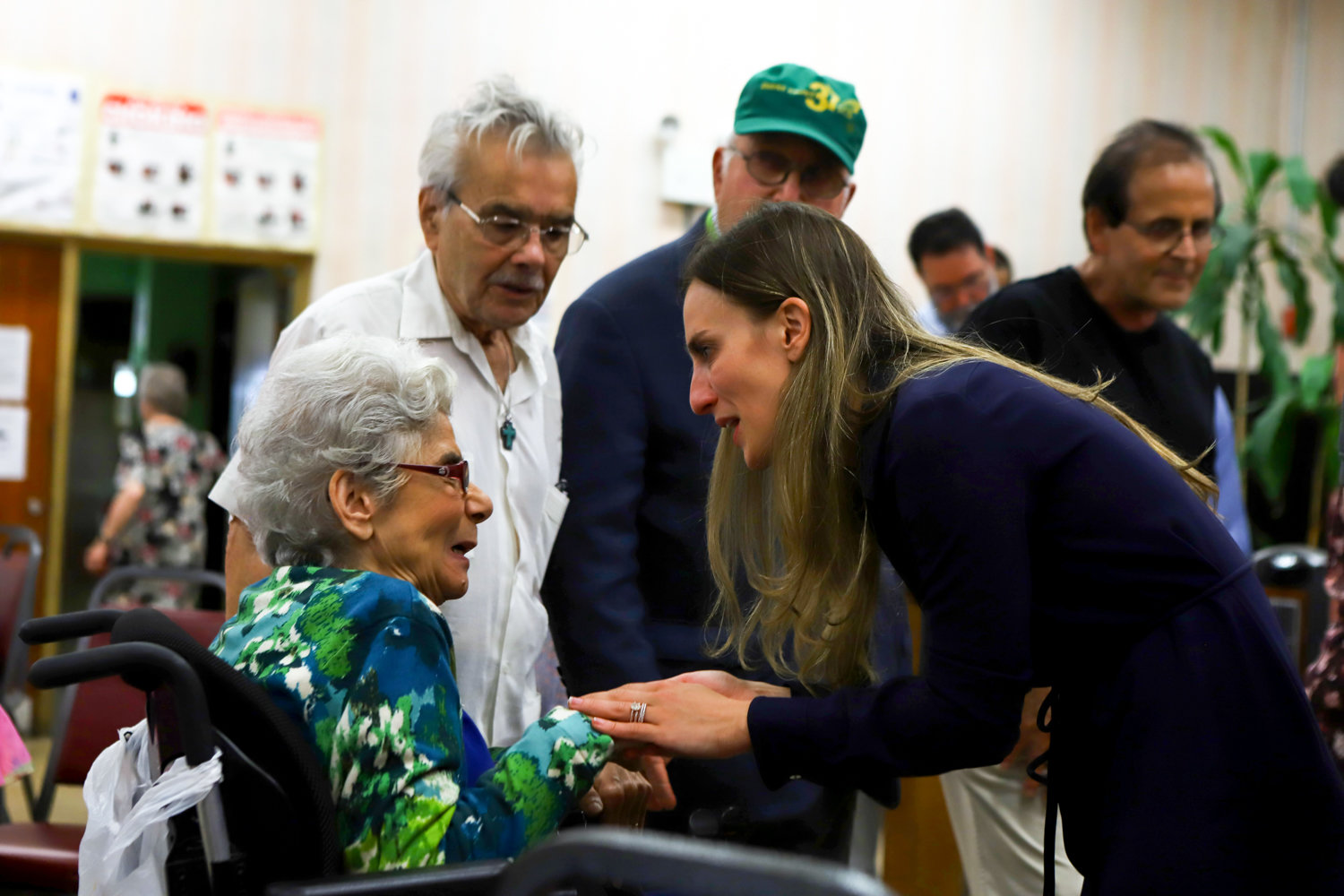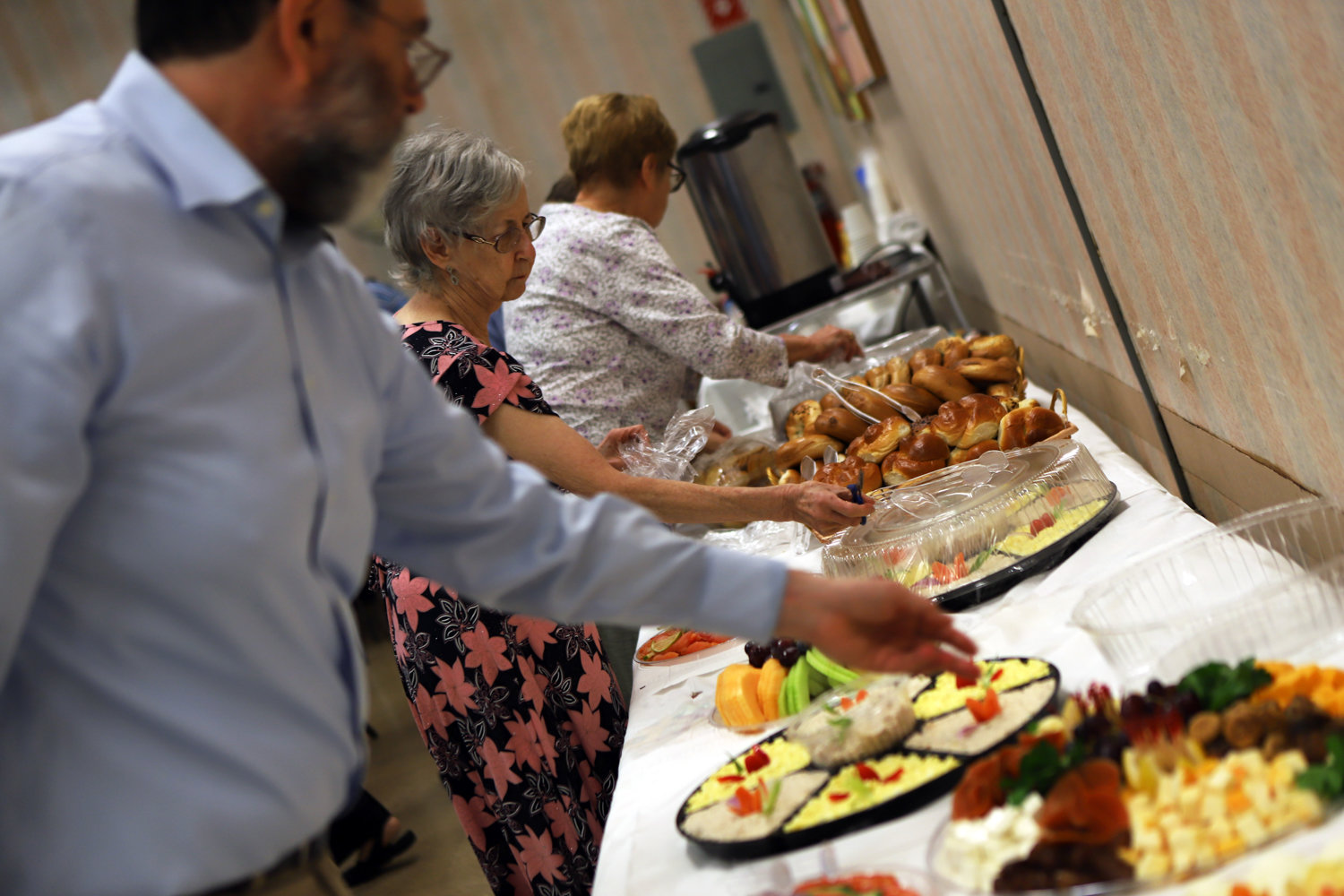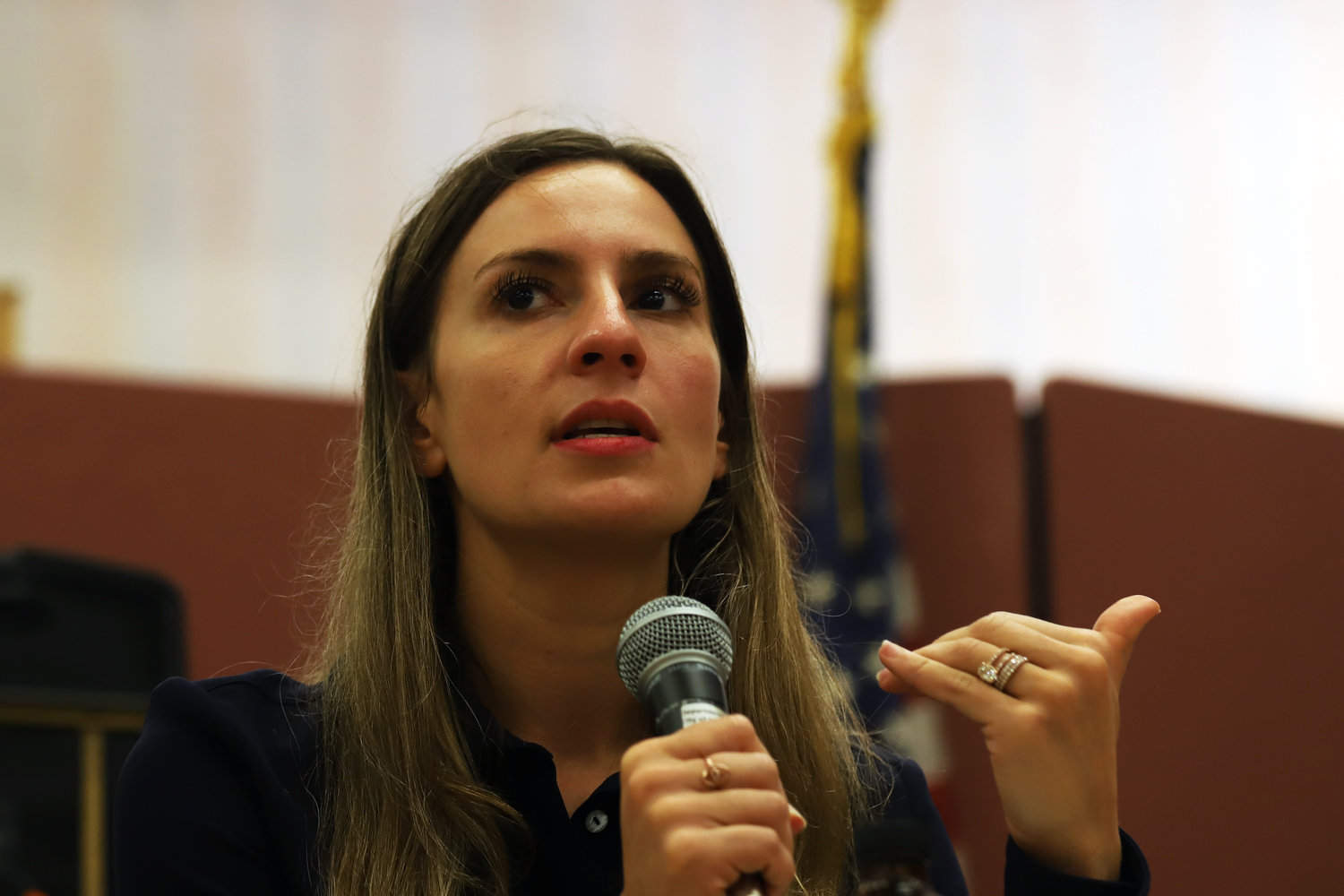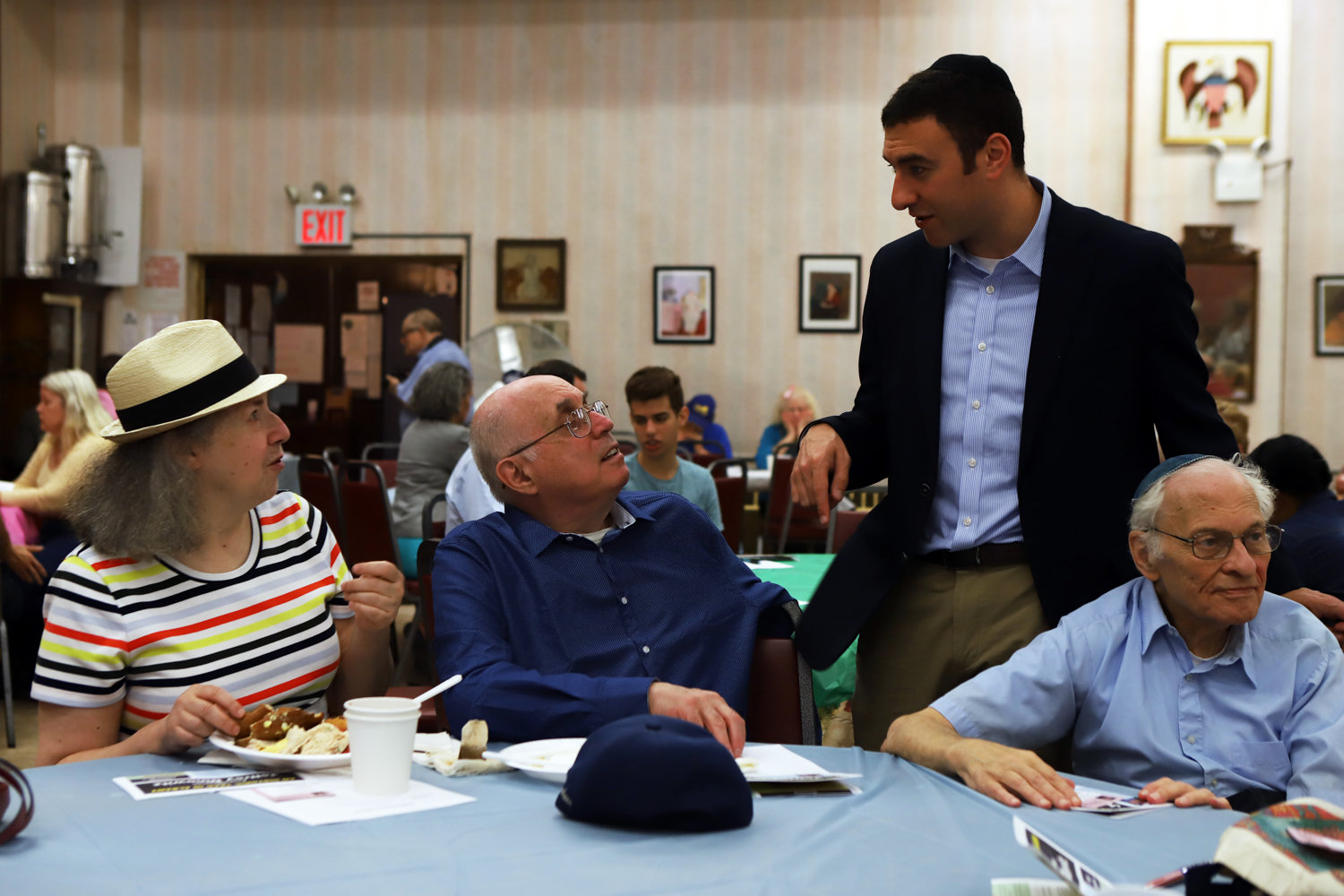Busy senator sits down to chat with constituents
It’s been a year since Alessandra Biaggi won the primary election that would ultimately make her state Sen. Alessandra Biaggi. Yet, it’s never too late for a welcome, especially over bagels and coffee last week at the Van Cortlandt Jewish Center.
Between a busy freshman session in Albany in which she sponsored an impressive slate of bills — many of which have since been signed into law — and her wedding over the summer, Biaggi said she now has more time to spend face-to-face with the people she represents.
“I can guarantee you that as I sit in my chair in Albany, I have all of you in mind,” she said. “I really do mean that.”
She was joined by Assemblyman Jeffrey Dinowitz, who hailed the 2019 legislative session as one of the most productive in recent memory. Issues that Assembly Democrats worked on for years were finally passed. A lot of that is because incoming senators like Biaggi were able to remove the Republican majority in the upper chamber.
“We were able to do that because we have two chambers that are kind of in sync and are working together, which is something that’s not really happened before to a large degree,” Dinowitz said. “I think, ‘Gee, we did everything this year. What’s left?’
“There’s always more to do.”
Those who made their way to the Sedgwick Avenue center had a to-do list waiting for them.
Regarding affordable housing for senior citizens, both legislators said passage of tenant protection laws this summer was a huge step forward to prevent homelessness at all age levels.
The Mitchell-Lama program — an affordable housing program for families making moderate incomes — is heavily subsidized through state tax revenue. Because the apartments are nice and quite affordable, their availability is scarce.
There’s been a lot of effort to increase affordable housing through other programs. Developers are given tax breaks for letting a certain number of units under market value, but those rents can still range in the $4,000 territory for a two-bedroom apartment.
“So one person’s affordable is not necessarily affordable to another,” Dinowitz said. “And we’ve put a lot of money into giving tax breaks to developers, and I don’t personally think we get our money’s worth.”
Part of the problem is that the federal government sets the income limits that define affordable housing locally. Unfortunately, it counts Westchester County — where cost of living is much different — along with the Bronx in its determination.
“So the (levels) are much higher than is practical and realistic for this county,” Biaggi said. It’s a problem that several congress members are working on fixing.
The tenant rights bills closed loopholes that allowed landlords to dramatically increase rent after an introductory period and that incentivized keeping housing vacant. Another component of the bill allows reverse mortgages of co-ops, Biaggi said. Previously, owners couldn’t withdraw equity from their property.
A prominent feature of the Van Cortlandt neighborhood is the Jerome Park Reservoir. The city announced in June it plans to keep the north basin dry once work on the much-larger southern basin is completed somewhere around 2025.
The news enraged a community that fought plans in the 1990s to dramatically alter the reservoir with a filtration plant, office buildings and parking. Dinowitz called it “one of the stupidest, worst plans in the history of this city.”
Although it looked at one time those plans were long dead, he suggested the plans were simply dormant, and another attempt to alter the basin is afoot. And its unclear if a public outcry this time will stop the project.
The high perimeter fence and tight security around the reservoir highlights how the Bronx is treated differently than the other four boroughs, Biaggi said.
“A perfect example is in Manhattan,” she said. “The reservoir in Central Park doesn’t have the same protective barriers around it.”
Yet city officials insist Jerome Park needs security because of terrorism threats. Removing the fence is on Biaggi’s list of things to address in the senate during the upcoming legislative session.
New York schools are among the most segregated in the country, and it’s especially so in the Bronx.
The state is responsible for funding public schools. More than a decade ago, the non-profit Campaign for Fiscal Equity won a lawsuit against the state claiming city schools were underfunded. The ruling forced state officials to establish a new funding formula to determine the needs of every school district.
“Unfortunately, what we’re seeing 10 years later is not only have the schools not been able to use those funds, but the state owed all school districts all over the state more than $4 billion,” Biaggi said. “Collectively, more than $88 million is owed to the public schools in my district.”
The areas with the highest needs are the most underfunded, she said. After-school care and arts classes are rare, while skills that would put students ahead of the curve in academics — like math, science, engineering and technology — are a distant hope.
Few students in the Bronx are accepted into the city’s specialized high schools, Dinowitz said. Many education officials have advocated ditching the entrance exam and eliminating gifted programs as a way to diversify schools. Dinowitz supports the specialized high school exams, which he said are necessary to determine the best admission candidates.
“However, that doesn’t mean there can’t be some changes,” he said. “The fact there are glaring racial and ethnic disparities in both of those programs and we can’t just say, ‘Oh, well, they just didn’t pass,’ or whatever. That’s not good enough.”

